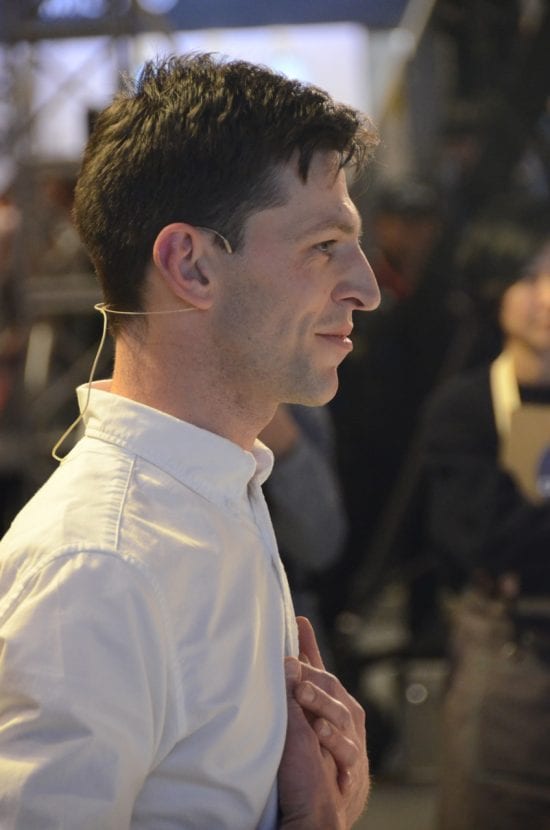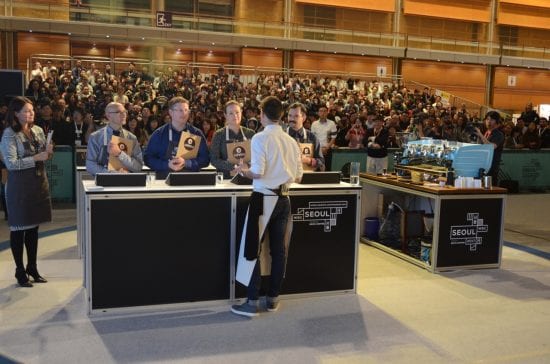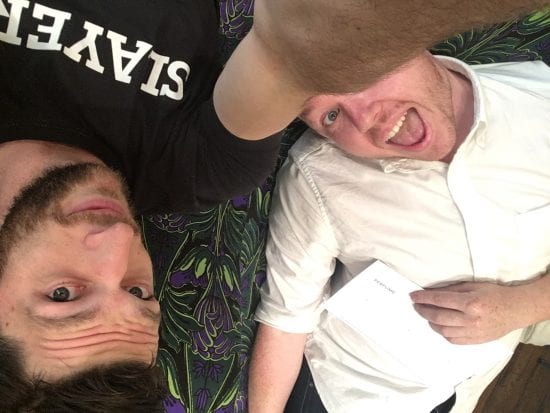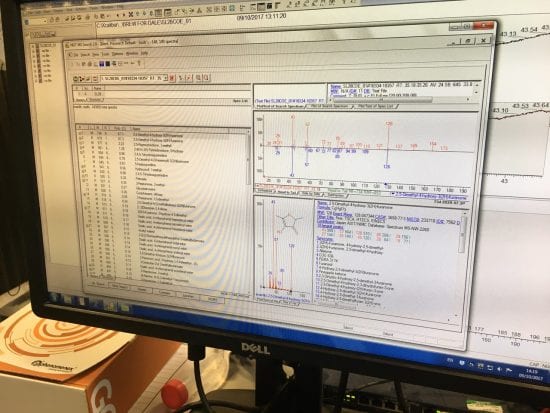
Dale Harris, the 2017 World Barista Champion, opens up about his coffee career and his journey as a longtime barista competitor in an exclusive two-part interview with Barista Magazine.
BY CHRIS RYAN
BARISTA MAGAZINE ONLINE
Earlier this month in Seoul, South Korea, baristas from 58 countries around the world battled for supremacy in the World Barista Championship. After four days of top-notch competition, Dale Harris—the National Barista Champion from the United Kingdom—was named the 2017 World Barista Champion.
Dale is the director of wholesale for UK roaster Hasbean Coffee. He’s also a veteran barista competitor who year after year has competed at the UK Barista Championship, but didn’t win his first national title until this year. Competing on the world’s stage for the first time, Dale brought a routine focusing on how coffee’s sensory experience is dictated by the work done at origin. (Watch his finals performance here.) It was a dense, science-heavy routine that also took some risks and veered from territory familiar to most competitors.
In the first part of our two-part interview with Dale, we learn about his journey through barista competition and why he took a scientific approach to this year’s routine.
Chris Ryan: Tell me about your background—how did you start working in coffee? How long have you worked with Hasbean, and what’s your role there?
Dale Harris: I started working in coffee because a previous career in fashion retail had come to a natural end and I had the opportunity to choose what I would do next. I chose coffee because then, as now, it’s something I find exciting and interesting on many levels. Espresso led me to barista competition and barista competition led me to Hasbean—I’ve worked with Steve [Leighton, Hasbean’s owner] since 2010, a year after I started competing. I look after our wholesale customers and their businesses.

My day-to-day work includes everything from managing our wholesale relationships and barista training to fixing broken things and helping customers make the most of our coffee. I’m surrounded by incredible people who work incredibly hard, and I owe everyone at the office a lot for their patience with me over the last few months!
CR: Can you tell me about your journey as a competitor? I understand you competed in the UK for a long time and finally broke through this year.
DH: I competed for nine years, each year learning something more about myself and about coffee, with the goal always being to present on the World Barista Championship stage. I’m super grateful for the opportunity both Hasbean and the competition allowed me to learn, grow, and progress.
Competing for so many years in a row can be draining and sometimes demoralizing. In 2013 I took a break and didn’t compete, but watching other people present in the UK that year (my friends John Gordon and Estelle Bright particularly) reminded me of all the things I love about competition and allowed me to come back with new ideas and new approaches the following year.
One of the challenges of barista competition is that, regardless of how your performance scores, there are other people competing. And, more often than not, there are people better than you at making coffee. It takes a little time to understand that winning is not the most important thing about competing—delivering on your vision and performing the best you can for 15 minutes is an achievement in and of itself.
Each time I’ve competed, I’ve been able to learn more about one aspect of the way coffee is grown or processed, roasted or brewed, and later, all of those lessons become valuable. I’m at the end of a long journey now, and looking back, I can see how each step fed into what we presented in Seoul. That’s a really happy thing.

CR: You decided to focus your routine around aromatic compounds, which are how we experience flavor. Why did you go with that focus? And what was the experience like trying to balance dense scientific information in a palatable way?
DH: This routine began with a really exciting experience that my coach, Pete Williams, and I had at an exhibition on perfumes held at Somerset House in London. While the connection between aromas and flavor is something that forms a basis in most sensory training and is familiar to many baristas, this exhibition used objects, textures, sound, and materials to deliver a multi-sensory introduction to scents, and was a key inspiration to what we presented in Seoul.

As we developed the idea more and more, the idea of running shots of our coffee through gas chromatograph mass spectrometry (GCMS) and using the results to inform the judges’ experience became a clear goal. We were really lucky that we were able to gain access to the GCMS machine at the University of Nottingham, thanks to relationships built through my work as director of wholesale for Hasbean. Really, this is just a story of pursuing each thread of an idea until we came up with something we could be really excited to present.

One of the challenges with barista competitions is always trying to balance your message with the time limit of 15 minutes and still produce amazing drinks. Throughout preparation for the competition, we constantly tried to retain as much of the science’s integrity without letting it “get in the way” of what’s really important for the judges’ experience. Unfortunately, this meant some interesting ideas and results getting left to one side as we honed the routine. But we were really proud that, at the end, we could present something logical, engaging, and based in the taste experience the judges would perceive once the drinks were served.
Check back for part two of our interview tomorrow, where Dale talks more about his WBC-winning routine and reflects on what winning the competition means to him.

